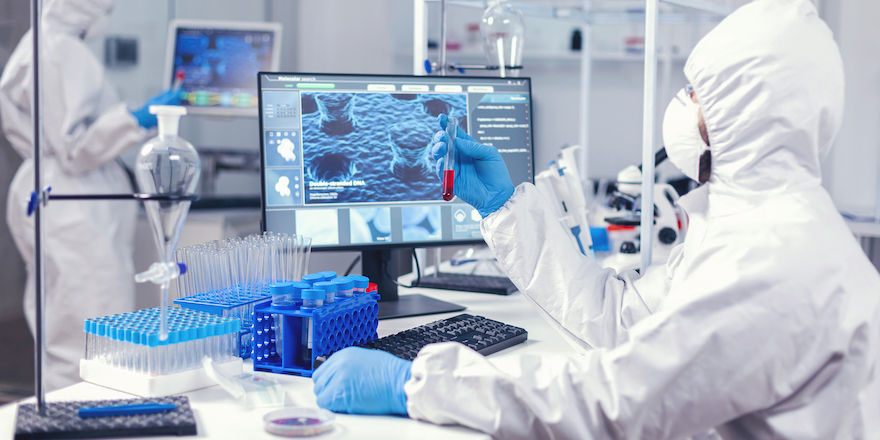Charting the Course: Diagnostic Labs in the Post-Pandemic Era
Introduction: The healthcare landscape has been irrevocably altered by the COVID-19 pandemic. Diagnostic laboratories, once primarily focused on virus testing, are now at a crossroads, seeking to redefine their roles in a post-pandemic world. As a diagnostic laboratory owner, I’ve witnessed this evolution firsthand. In this piece, we’ll delve into how laboratories are adapting, leveraging molecular testing, addressing staffing shortages, and meeting reimbursement challenges.
The Legacy of COVID-19 Testing: The pandemic spurred an unprecedented surge in COVID-19 testing, a pivotal role that laboratories played in safeguarding public health. Now, as the pandemic transitions to an endemic phase, laboratories are contemplating their next steps. The expiration of the federal Public Health Emergency for COVID-19 on May 11 has provided laboratories with a renewed impetus to utilize their acquired expertise, equipment, and resources for new testing ventures.
Repurposing for a New Normal: With the demand for COVID-19 testing diminishing due to widespread vaccination and at-home rapid-antigen tests, laboratories are in search of a new equilibrium. The challenge lies in standardizing operations and optimizing existing resources, especially in the face of financial constraints incurred during the pandemic.
The Molecular Testing Renaissance: Molecular testing, once viewed as a formidable technology, emerged as a linchpin in the fight against COVID-19. Laboratories rapidly adapted, embracing PCR testing and unlocking its potential. This newfound proficiency in molecular testing is a linchpin for labs seeking to expand beyond COVID-19 testing. Whether screening for infectious diseases or exploring applications in oncology and pharmacogenomics, molecular testing offers a versatile toolkit for laboratories.
Addressing the Staffing Conundrum: The pandemic took a toll on an already stretched workforce, exacerbating the existing shortage of medical technologists. Automation and artificial intelligence have emerged as critical solutions. Integrating data solutions and remote capabilities has not only improved efficiency but also alleviated labor strains. However, investments in the human workforce remain paramount. Enhancing working conditions, offering competitive salaries, and providing opportunities for growth are essential to retaining and nurturing laboratory professionals.
Meeting Reimbursement Challenges: As laboratories broaden their testing capabilities, reimbursement in the post-pandemic world emerges as a critical concern. Demonstrating the effectiveness of new testing methodologies is imperative. Laboratories must proactively generate evidence to justify the expanded use of molecular testing.
A Collaborative Future: The pandemic has broken down silos within the healthcare ecosystem. Laboratories are now integral players in decision-making and are sought after for their insights. This newfound collaboration underscores the pivotal role that laboratories play in the healthcare delivery system.
In conclusion, the post-pandemic era presents both challenges and opportunities for diagnostic laboratories. By capitalizing on their newfound expertise in molecular testing, addressing staffing shortages through a combination of automation and workforce investments, and actively engaging in evidence generation for reimbursement advocacy, laboratories can forge a path forward in this dynamic landscape. As laboratory owners, we stand at the forefront of shaping the future of healthcare.
About: Sunrise Clinical Lab, a part of the Sunrise Group of Companies led by Founder and CEO Mohammed Naeem, provides comprehensive laboratory services in New Jersey and New York, delivering precision and excellence in healthcare diagnostics.
Read more



